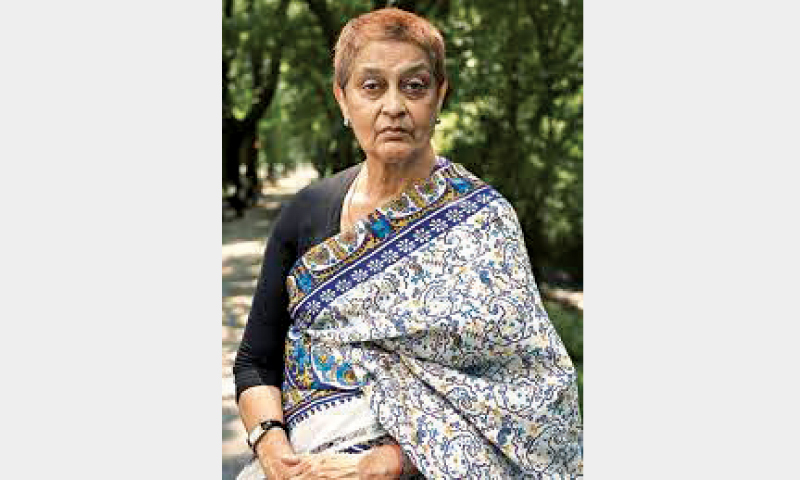LAHORE: Literary theorist, philosopher and feminist critic Gayatri Spivak says the point about subaltern is not to put it in a position of authenticity as one destroys or deconstructs subalternity to study it.
Subaltern Studies is a political and social kind of work which is always going on and if one considers subaltern wonderful and authentic, then there is no need to go to any university, she says questioning the authenticity of subalternity.
She was speaking to the audience during a talk held at the FC College (a chartered university) here on Wednesday. Ms Spivak, an authority on Subaltern Studies, said praising violence could bring about more violence, adding that the issue of subaltern violence should be put aside as it existed at the places where there was no other option left.
Ms Spivak said she tried to understand the suicide bombers instead of totally negating them or destroying them. “If one is dealing with violence, one should not condone it but one should look where it is coming from.”
In old days, she said, subalternity was limited to social groups that lived on the margin and that definition was still relevant but in new subalternity, attention had been focused on pharmaceutical dumping in women, fertilizer dumping (in the Indian area where she came from), DNA cloning and super exploitation as they were new motifs of Subaltern Studies.
“Arab Spring comes from the subalternised subjects. In literature, in Sophocles’ Antigone, a princess become nothing and that’s subalternisation and in Shakespeare’s King Lear, the fate of the king, is also subalternisation.”
Talking about postcolonialism, she said the postcolonial theory should be questioned, adding that her focus had not been colonialism for many years.
Mentioning the years when she went to the United States, she said when she went there for studies she was very young. “For us, the word ‘postcolonial’ was ironic. When I was called postcolonial, I did not know I was writing postcolonialism.”
Ms Spivak said her idea was not to consider postcolonialism as liberality movement. “My students and teachers don’t know anything about colonialism. How do you expect them to know colonialism when they don’t see a white man there. What they do know is class system,” she said while referring to the schools that she runs in West Bengal.
“I don’t consider myself a supporter of postcoloniality and I think postcoloniality or any other theory should be looked at carefully,” she said.
About teaching humanities, she said using imagination to enable students to imagine was important and ‘what a teacher needs is to know broadly the general pattern of (students) desires’. She said a teacher should be able to figure out how to deal with students, coming from different classes, and diversity among the students.
“It’s obligation of the teacher to learn the pattern of desires that she/he confronts, then to arrange the clearly existing desires,” she said.
Ms Spivak said that for teaching any theory, one should not apply that theory, adding that the students should learn what theory they were going to produce themselves. Giving an example, she said while teaching she asked her students to write their own theories. “I teach theory as if I am teaching creative writing,” she said. She advised teachers not to teach what they did not like.
On the question of religion, Ms Spivak said Din and Dharma were the transcendental which meant that there was ‘something other than mine’ and something beyond the intending subject.
“Intending subject is small and religion exists in the space that’s bigger than the intending subject and it exists outside the intending subject,” she said.
Explaining affirmative sabotage, she said ‘it is something you do when you learn from inside that what you want to criticise’ and that she had to find out how intellectual labour could be taught. She said she used the term ‘sabotage’ because it was something which ruined the master’s machine from inside, ‘exactly opposite to those who took raw material from us and create the Other among us’.
Published in Dawn, October 30th, 2014














































